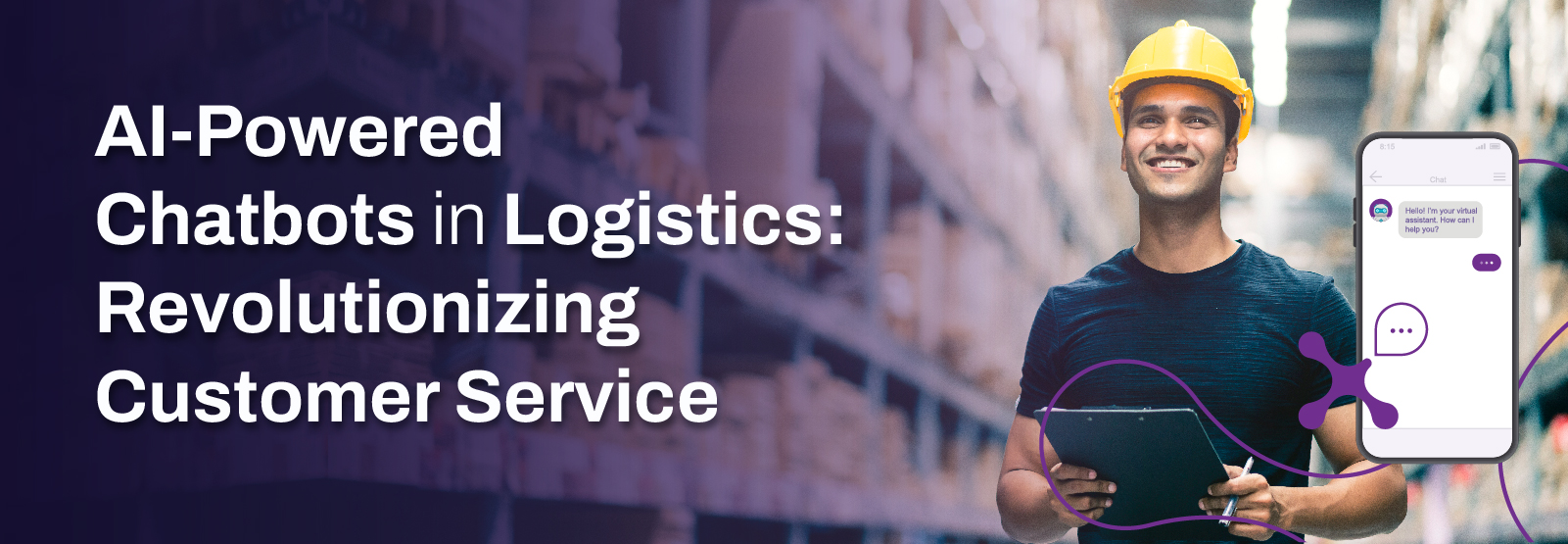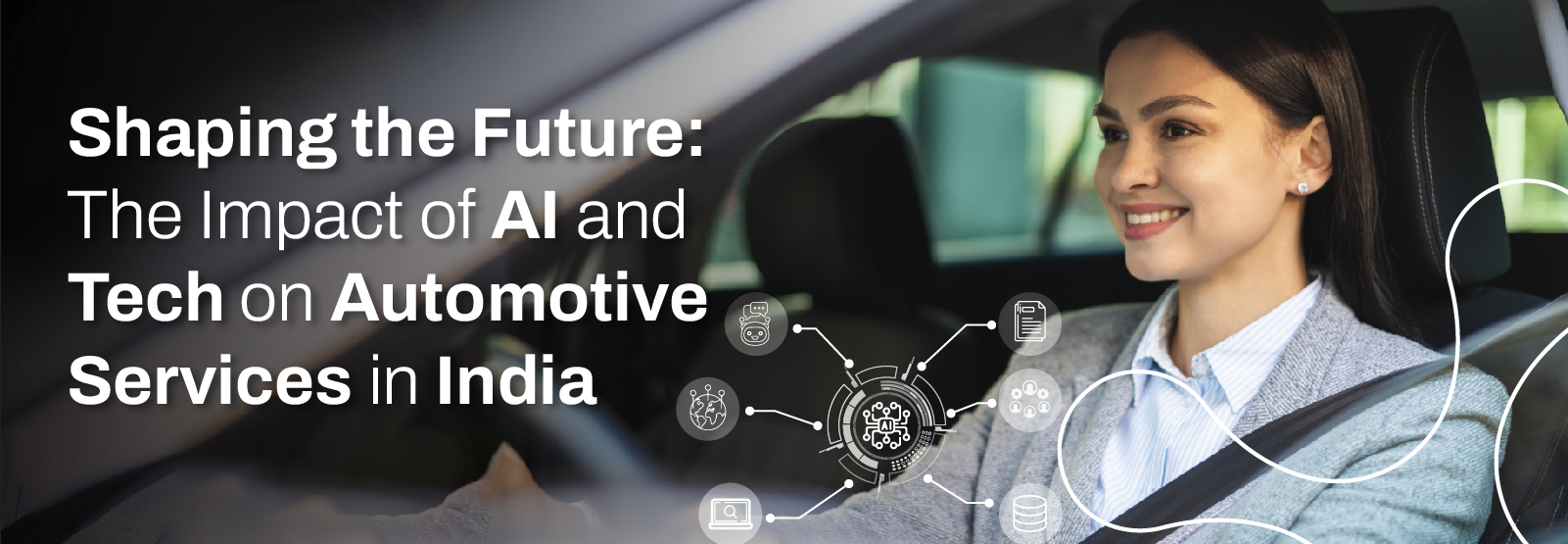The modern era has witnessed the rising popularity of online shopping. It has transformed the way businesses connect with their customers due to the adoption of advanced technologies. The logistics sector has emerged as the backbone of this industry. It has facilitated the seamless movement of goods and products from manufacturers to end consumers.
However, ensuring the timely delivery of the right product to the right customer is no longer the sole concern of logistics companies. In today’s competitive market, how customers feel throughout the whole process, from placing the order to receiving it, is important as well.
Companies must, therefore, build strong relationships with customers to keep up with the evolving customer expectations. This is where AI chatbots can help.
Read ahead to find out how these intelligent digital assistants are revolutionizing customer service by providing real-time support, personalized assistance, and streamlined communication channels.
What Challenges Does the Logistics Industry Face?
AI chatbots in logistics can help overcome the various challenges that the stakeholders in the industry face. These challenges include fraudulent delivery agents, last-mile delivery complexities, demand for real-time visibility, and more, as discussed below:
→ Fraud by Fake Delivery Agents
The logistics industry faces challenges in verifying the authenticity of delivery agents, especially in cases where manual verification processes are susceptible to manipulation. Implementing secure and reliable methods to authenticate delivery agents is crucial to prevent fraud and maintain the integrity of the supply chain.
→ Inability to Track SOP Compliance
In logistics, adherence to SOPs is crucial for maintaining efficiency, consistency, and quality in operations. Failure to comply with SOP can have a negative effect on the brand image and credibility. However, traditional methods to track SOP compliance may be error-prone and time-consuming. This can lead to instances where SOPs are not followed correctly, and it can be difficult to analyze agent performance and make necessary adjustments.
→ No Visibility into Last-mile Data
Lack of visibility into last-mile data means that logistics companies may not have real-time information about the status and location of shipments during this critical stage. This lack of visibility can lead to challenges such as delays, inaccurate estimated delivery times, and difficulties in rerouting shipments in response to changing circumstances.
→ Lack of Unified View of Customer Profile
In the logistics industry, a unified customer profile is essential for providing personalized services by understanding customer preferences and specific needs. Challenges arise when customer data is scattered across different systems or platforms. This makes it difficult for logistics companies to create a cohesive and accurate view of each customer’s history and requirements.
→ Lack of Privacy of Customer Data
Logistics companies have access to a large amount of sensitive customer data. The lack of robust data protection measures makes customer data vulnerable to breaches, unauthorized access, or misuse. To build customer trust and comply with data protection regulations, logistics companies need to prioritize the implementation of strong security measures to safeguard customer information throughout the supply chain process.
Streamlining the Delivery Process with AI Chatbots in Logistics
AI-powered chatbots can play a pivotal role in addressing the above-discussed challenges faced by the logistics industry. Here are some points on how logistics chatbots can be beneficial:
→ Enhanced Operational Monitoring
AI-powered chatbots can be programmed to track SOP compliance, ensuring that every step of the logistics process adheres to predefined protocols. This helps minimize errors and ensures the highest customer service standards.
→ Last-Mile Data and Customer Analysis
By integrating advanced data analytics, logistics chatbots provide insights into last-mile data, helping identify bottlenecks, optimize delivery routes, and enhance overall delivery processes. These chatbots also consolidate customer data, creating a unified view that enables logistics companies to understand customer preferences and behavior, leading to more personalized services and long-term customer loyalty.
→ Automated Order Updates
By sending automated notifications to customers, logistics chatbots can keep them informed about their order status, including updates on the shipment’s location, expected delivery time, and any potential delays. This feature ensures transparency and improves customer satisfaction.
→ Data Security Measures
AI-powered chatbots can employ sophisticated algorithms to detect anomalies and patterns associated with fraudulent activities, thereby mitigating the risks posed by fake delivery agents and enhancing the security of the entire logistics ecosystem. Further, chatbots can be designed to prioritize the security and privacy of customer data, implementing robust encryption and authentication protocols to safeguard sensitive information throughout the entire logistics process.
→ Proactive Issue Resolution
With their ability to quickly analyze data and patterns, AI-powered chatbots can efficiently address customer concerns and resolve issues, such as missing or delayed deliveries, ensuring prompt and effective solutions without the need for human intervention.
→ Easy Modification of Delivery Instructions
Chatbots facilitate interactive conversations, allowing customers to communicate changes in delivery locations and dates seamlessly. They provide round-the-clock accessibility, enabling customers to schedule deliveries at any time. Once informed, chatbots automatically update the logistics system, ensuring packages reach the correct destination without unnecessary delays.
Exotel- Driving Success for the Logistics Industry
Exotel has played a pivotal role in driving success for the logistics industry by harnessing the capabilities of AI chatbots. One notable example is the success achieved by the prominent logistics player Ekart. Exotel’s solutions helped Ekart strengthen customer security by concealing customer phone numbers from the delivery agents. Similarly, comprehensive insights into agent performance helped Ekart to identify any inefficiencies and take necessary corrective actions. With seamless connectivity between agents and customers, Exotel ensures a reliable and superior call experience.
Exotel’s connected customer conversion platform is powered by AI technology and offers advanced features like 100+ language support, seamless agent-bot transfer, live chat, self-service capabilities, 14+ channel support, sentiment and speech analytics, etc. This not only enhances operational efficiency but also contributes to overall customer satisfaction by providing a streamlined and secure communication channel.
 +91-808 8919 888
+91-808 8919 888 +91-808 8919 888
+91-808 8919 888 +966 135 181 912
+966 135 181 912




